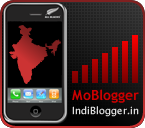Angela Zhang, 17
While most medical scientists are
simply looking for cancer cures, Angela Zhang is succeeding to
personalize cancer cures—at the tender age of 17. Her idea is so
promising that the high-school senior took home a $100,000 prize in the
national Siemens Competition for her efforts so far. "I created a
nanoparticle that's kind of like the Swiss army knife of cancer
treatment in that it can detect cancer cells, eradicate the cancer cells
and then monitor the treatment response. So the major aim of the
project was to personalize cancer medicine," she told ABC.
Along with Siemens, Harvard has also taken notice of her talents.
She'll head off to the Ivy League school this fall.
Julia Bluhm, 14 Julia Bluhm wasn’t happy with the way the young fashion magazines portray beauty, so she petitioned to change the face of the industry, asking Seventeen to stop retouching photos in their pages—and garnered 84,000 signatures in agreement. Her plea to editor Ann Shocket read, "Here's what lots of girls don't know. Those 'pretty women' that we see in magazines are ... often photoshopped, airbrushed, edited to look thinner ... I've learned that we have the power to fight back." Shocket listened. She made the entire Seventeen staff sign a Body Peace Treaty, never to alter a model's face or body. Other young teens of an activist group named Spark recently visited Teen Vogue's offices with a similar plea, but were snubbed by the publication.
Jack Andraka, 15 Pancreatic cancer is one of the deadliest forms of cancer there is. Within five years, 94 percent of those with the disease pass away. Finally, there’s a better and cheaper way to diagnose pancreatic cancer more quickly. The test, created by 15-year-old Jack Andraka, detects an abnormal protein that’s an indicator of the disease. “I got interested in early detection, because that’s the best chance of treating cancer,” he said, according to TIME. “The only practical way of doing this is through routine blood tests, so that’s what I’ve developed here.” For this innovation, he nabbed first prize in the Intel International Science and Engineering Fair and $100,000 in winnings. Smart kid that he is, he’s putting that money toward college.
Alex Godin, 17
Julia Bluhm, 14 Julia Bluhm wasn’t happy with the way the young fashion magazines portray beauty, so she petitioned to change the face of the industry, asking Seventeen to stop retouching photos in their pages—and garnered 84,000 signatures in agreement. Her plea to editor Ann Shocket read, "Here's what lots of girls don't know. Those 'pretty women' that we see in magazines are ... often photoshopped, airbrushed, edited to look thinner ... I've learned that we have the power to fight back." Shocket listened. She made the entire Seventeen staff sign a Body Peace Treaty, never to alter a model's face or body. Other young teens of an activist group named Spark recently visited Teen Vogue's offices with a similar plea, but were snubbed by the publication.
Jack Andraka, 15 Pancreatic cancer is one of the deadliest forms of cancer there is. Within five years, 94 percent of those with the disease pass away. Finally, there’s a better and cheaper way to diagnose pancreatic cancer more quickly. The test, created by 15-year-old Jack Andraka, detects an abnormal protein that’s an indicator of the disease. “I got interested in early detection, because that’s the best chance of treating cancer,” he said, according to TIME. “The only practical way of doing this is through routine blood tests, so that’s what I’ve developed here.” For this innovation, he nabbed first prize in the Intel International Science and Engineering Fair and $100,000 in winnings. Smart kid that he is, he’s putting that money toward college.
This 17-year-old tech whiz, who
taught himself how to code for the web in one week, has one million
dollars in funding to grow his company called Dispatch, which combines
Google Docs and Dropbox to allow easier sharing on the web. And although
he’s keen to at least give college a shot, he’s got his eyes on a
bigger prize—networking for future ventures. "I think that there are
connections made in college, and that college provides a great launching
pad. The courses in college, I don't think, are incredibly valuable.
... I'm going to apply to college and see where it goes from there." Who
knows? This kid might just become the next Bill Gates or Mark
Zuckerberg—both of whom never finished college.







































No comments:
Post a Comment